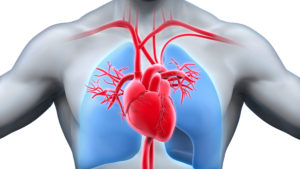Biotech is essential for advancing science. Biotechnology is a broad term that involves the use of living organisms to develop new products. Biotechnology creates lifesaving medications and tools. It can also be simple items found in our homes. Alcohol production is the most basic example with beer being made from yeast and sugar-converting enzymes. Some household products come directly from cells, like washing detergents and cosmetics.
Industrial biotechnology is most significantly used to create new medicines that have been previously difficult to produce. Bio research is making leaps and bounds into futuristic ways of thinking. In 2018, the U.N. gave cautious approval for gene drive therapy. This is where scientists can genetically mutate a mosquito’s genes to create infertility in Burkina Faso, Africa. The project is called Target Malaria and it is funded by the Bill and Melinda Gates foundation. Engineer gene drives in mosquitos will hopefully kill out infection-carrying insects. This project is slated for 2024.
Human epidemics like the flu might be finally eradicated with the use of biotechnology. The flu virus is very difficult to control as it mutates at a rapid rate. Scientists are currently using data to forecast the strains to create vaccines resistant to the flu. Currently, there is a lot of funding, $160 million, going into a universal flu vaccine. Hopefully breakthroughs will be seen this year.
For many, biotechnology may be the only hope for their survival. With many diseases such as Leukemia and Sickle Cell disease, patients rely on bone marrow transplants to revive their immune systems. Although these transplants can be the only cure for some, they can be risky. Doctors at City of Hope hospital in Pasadena, California are leaning towards CAR-T cell therapies as a safer treatment for patients at critical stages of their disease. CAR-T cell therapy is gene editing. If a patient has a genetic deficiency that is leading to their illness, genes can now be injected to fight the disease in a unique way. Last September, Sangamo Therapeutics in Richmond, California shared that they had injected gene-editing enzymes into a patient. The therapy corrected a genetic deficiency that prevented him from breaking down complex sugars. The therapy worked and now clinical trials are being done to see if this is a safe therapy for all.
Neuroscience has also taken an interest in biotech in a sci-fi kind of way. Elon Musk’s company is seeking to develop brain interfaces that could work with an individual’s neurology. The thought is that these implanted bio particles could help those who suffer from tremors, paralysis, nerve damage and memory loss. These devices could work autonomously with the brain’s neurological waves and help by applying electrical stimulation to reduce a patient’s ailments. 2019 may be the year that scientists decide to cut the cord and fine-tune new neurological treatments.
Without biotechnology, there would be no advancements in science. Biotechnology looks at science from the root source and finds solutions to problems by using the bones of life. Cells and enzymes have the ability to morph and fill gaps that have been created by outside destruction. Expect to see biotech flourish in 2019.



